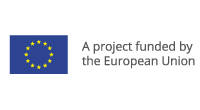Climate change is not a priority for young Arabs

Climate change ranks almost bottom of a list of concerns for young Arabs across the Middle East and North Africa, according to findings in the 8th annual ASDA’A Burson-Marsteller Arab Youth Survey 2016. Of the 27 key issues raised in the survey, concerns over “climate change and the environment” was placed as 26th, only above “personal debt”. “The rise of Daesh” resonated the most with young people and was listed as their top-most concern. Just 54% of young Arabs cited “climate change and the environment” as being of concern. The findings suggest there is still a long way to go to encourage Arab Youth throughout the Middle East to become engaged with the environmental agenda.
The survey was based on 3,500 face-to-face interviews with men and women aged 18-24, conducted by the international polling firm Penn Schoen Berland (PSB). A total of 16 Arab countries were targeted, which for the purposes of the survey were grouped as follows: (i) Bahrain, Kuwait, Oman, Qatar, Saudi Arabia, and UAE (Gulf Cooperation Council (GCC); (ii) Iraq, Jordan, Lebanon, Palestine, Yemen (Levant & Yemen); (iii) Algeria, Egypt, Libya, Morocco, Tunisia (North africa).The interviews were conducted from January 20 to February 12, 2016.
The survey shows a marked geographic variation in the level of concern. In the GCC, for example, 51% of young Arabs said they were not concerned about the environment and climate change. In North Africa, however, youth appear to be more engaged on the issue, with 65% expressing their concern. In Morocco, the COP22 host country, 70% of youth interviewed said climate change was a concern. Arab youth are also ambivalent about their leaderships’ ability to tackle climate change. When asked how confident they were in their national government’s ability to deal with climate change, the percentage of young people in the GCC who expressed belief in their country’s leadership was very high, at 78%, against 50% for all Arabs, just 36% for young Arabs in North Africa and 29% for youth in the Levant.



